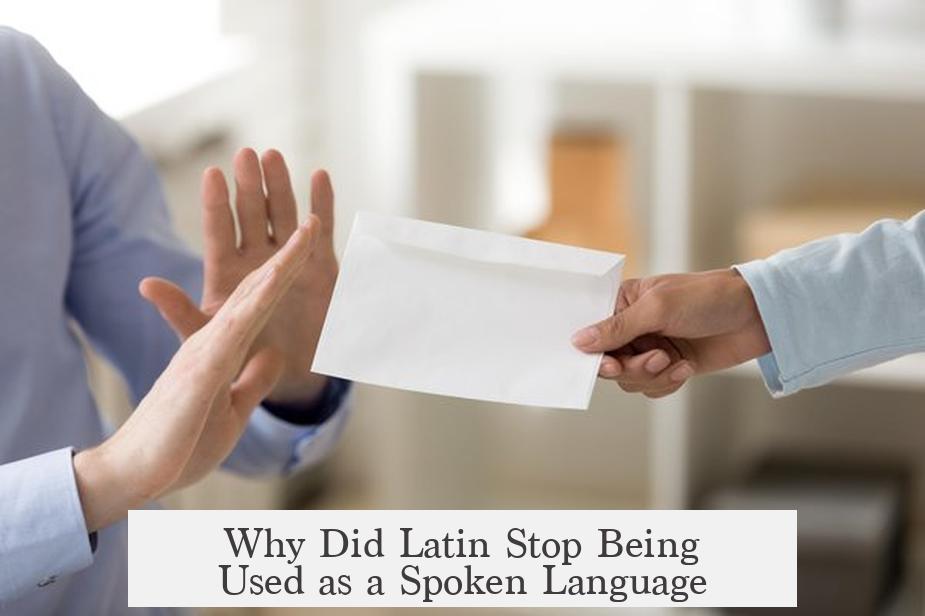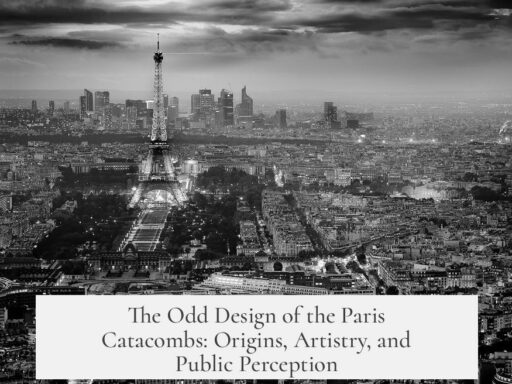Latin stopped being used as a spoken language mainly because it was a language with limited native speakers, which declined in power and influence, and because its spoken form evolved into distinct Romance languages, while Classical Latin became a preserved literary and scholarly language rather than a living tongue.
During the Roman Empire, Latin existed in two forms: Classical Latin and Vulgar Latin. Classical Latin was the formal, literary language used by the educated elite, while Vulgar Latin was the everyday speech of the common people. This situation results in diglossia, where the high (Classical) and low (Vulgar) forms coexisted but differed substantially.
The educated elite spoke and wrote Classical Latin, which was relatively fixed and conservative. Children from wealthy families learned classical texts by authors like Cicero. However, this form of Latin was quite different from the Vulgar Latin dialects spoken across the empire, where regional variations thrived without standardization.
Standardized languages did not exist in ancient times. Most people had little or no formal education, and mass communication tools like printing presses or the internet were absent. Direct linguistic contact between the ruling class and the common folk was limited. This gap allowed Vulgar Latin to evolve independently and diverge considerably from Classical Latin.
As the Western Roman Empire declined, the Roman elite and Christian clergy remained the only consistent speakers of Classical Latin. Even within these groups, Latin was often a second language. Many priests and officials belonged to different ethnic backgrounds and used Latin mainly as a lingua franca.
After the empire’s fall, various Germanic kingdoms replaced Roman rule, such as the Ostrogoths and Lombards. Classical Latin lost native speaker status and prominence. Meanwhile, Vulgar Latin dialects continued evolving in geographic isolation, eventually becoming Romance languages: Italian, Spanish, French, Portuguese, and others. From this point, proponents argue Vulgar Latin no longer qualifies as Latin because it evolved beyond mutual intelligibility with Classical forms.
The Renaissance sparked renewed interest in the classical texts. Scholars tried to revive and purify Latin by imitating the style of Cicero and other classical authors. This effort focused on a literary ideal, not the natural spoken style. Cicero’s works were carefully composed literary pieces, making the revived Latin formal and difficult to use in everyday conversation.
This revival led Latin to become predominantly a written and academic language. New scientific and philosophical terms developed in Latin were sometimes discarded or transformed during the Renaissance, complicating the language further. The last major scientific work published only in Latin is often cited as Newton’s Principia Mathematica.
Due to this emphasis on classical purity, Latin education focused on reading and parsing rather than speaking. The language was taught more as a dead or learned language. This approach made active use in speech impractical and undesirable. When a language stops being spoken regularly, its utility and vitality decline swiftly.
Latin remained a language of scholarship, religion, and diplomacy for centuries, but its spoken use faded. European languages like English and French rose in prominence, facilitated by broader native speaker bases and easier acquisition. Latin’s role transformed into that of a learned language, mainly for reading and writing rather than conversation.
| Key Factors in Latin’s Decline as a Spoken Language |
|---|
|
Latin ceased to be a spoken language because its native speaker base diminished alongside the Roman Empire’s fall, and the everyday speech of the people evolved separately into Romance languages. Classical Latin remained vital for reading and writing but became unsuitable as a natural spoken language. This historical process explains why Latin, once the language of a vast empire, is today a “dead” spoken language, preserved mainly in texts, liturgy, and academic tradition.
Why Did Latin Stop Being Used as a Spoken Language?

Latin stopped being used as a spoken language primarily because it had a small base of native Classical Latin speakers, and once these speakers lost power, the language faded from everyday use. Moreover, Vulgar Latin—the common tongue—did not vanish but evolved into the Romance languages we know today, such as Italian, Spanish, and French. But that’s just the surface. Let’s unravel this linguistic mystery step-by-step.
The Tale of Two Latins: Diglossia in Imperial Times
First things first: Latin in imperial Rome wasn’t just one language; it was two at once. This condition, known as diglossia, meant that the Classical Latin spoken and written by the educated elite was quite different from the Vulgar Latin used by common people.
Imagine Shakespeare’s English compared to the slang of modern-day teen gangs. That’s the rough scale between Classical Latin and the everyday Vulgar Latin. The elites prized their Classical Latin as “proper” and “prestigious”—a language of literature, politics, and church rituals.
Unlike today’s universal education system, where a single standard language is taught and reinforced through reading, writing, and media, there was little to no standardized language for everyday people in ancient times.
Lack of Standardization and Limited Contact Made a Language Divide

In those days, standardized languages were science fiction. Most people didn’t attend formal schools, mass media didn’t exist, and printed books were a rarity. This gap meant that the rich and educated had little linguistic contact with the common folk.
This disconnect kept the two forms of Latin evolving on separate tracks. Elite Classical Latin was more preserved and resistant to change, while Vulgar Latin was dynamic and flexible.
Classical Latin: Fixed, Formal, and… Frozen in Time?
Classical Latin was mainly a fixed language, learned through careful instruction of ancient Greek and Latin texts. Educated children memorized works by Cicero and Caesar, setting a high bar for what “correct” Latin was supposed to be.
This fixation meant that Classical Latin couldn’t evolve naturally like other spoken languages. Instead, it drifted away from the Vulgar Latin spoken on the streets, accelerating the linguistic split.
The Decline of Classical Latin Speakers

By late imperial times, Classical Latin was confined chiefly to the Roman elite and Christian clergy—groups growing smaller and more ethnically diverse. Most officials and priests learned Latin merely as a second language, a lingua franca.
When powers like the Ostrogoths and Lombards took over Western Roman territories, Classical Latin as a native tongue lost status and speakers rapidly declined. However, Latin’s life wasn’t completely over—it lingered in religion and international scholarly communication well into the Renaissance.
Why Did Classical Latin Really Die Out?
Classical Latin eventually ceased as a spoken language because it always had only a small, elite speaker base. When these elites lost their power and influence, the language’s use dwindled. Also, it became impractical to keep Latin alive as an international language after a millennium of no native speakers.
Instead, it was easier for people to adopt widely-known languages like English and French, which were living, breathing tongues.
Vulgar Latin Did Not Die—It Transformed
So what about the majority’s Latin? Vulgar Latin didn’t vanish. After the fall of the Western Roman Empire, population movements stalled, breaking language continuity. This allowed the Vulgar Latin dialects to evolve independently.
Eventually, these dialects became distinct Romance languages: Italian, Spanish, French, Portuguese, and more.
This raises an intriguing question: when did Latin stop being Latin and become these new languages? Some definitions say it stopped when speakers no longer understood Classical Latin.
Others argue Vulgar Latin’s spirit lives on in these languages—it just changed names.
The Renaissance: A Double-Edged Sword
The Renaissance revived interest in all things antique, especially Classical Latin.
Scholars obsessed over writing and speaking Latin as Cicero did, trying to “cleanse” the language from its natural evolution. Here’s the rub: Cicero’s Latin was always carefully composed—not casual spoken language. Trying to imitate that formality made Latin harder to speak or write naturally.
Why Renaissance Latin Lost Its Spark
On top of that, Renaissance Latin scholars essentially wiped away centuries of vocabulary growth, especially scientific and philosophical terms developed in later Latin usage.
Erasmus criticized this purge in Ciceronianus, lamenting that while Classical Latin was pure, it didn’t suit new ideas or easy communication.
Despite these challenges, Latin remained the academic lingua franca for centuries. Newton’s Principia Mathematica, for example, was one of the last major works published solely in Latin.
Latin Becomes a Language of Reading, Not Speaking
Interestingly, Renaissance purification transformed Latin into a language mainly read and parsed, not spoken. Schools taught Latin primarily as a reading language focusing on grammar and parsing texts.
As prose and speech styles were forcibly imitated from centuries-old classical models, Latin lost its role as a living tongue. No one spoke it conversationally anymore.
And for a language to survive, it must be spoken. When Latin ceased to be spoken, its use as a practical international language declined, slipping further into academic obscurity.
What Can We Learn from Latin’s Journey?
Latin’s fall as a spoken language isn’t just a story about words. It’s about culture, power, and how language reflects social realities.
- Diglossia kept Classical Latin and the everyday tongue worlds apart.
- Education and power shifts determined who spoke Latin and who didn’t.
- Language evolution happens organically, but Classical Latin tried to freeze itself in time.
- Revival efforts sometimes do more harm than good if they ignore natural language use.
In that light, Latin’s story is a linguistic caution: languages are most alive when spoken naturally and flexibly, not when trapped behind academic formalities.
So, do you think reviving a dead language is practical? Would Latin thrive today if it had modern tools like media or schooling? Or is it better left as the root of so many vibrant Romance languages?
Whatever the case, Latin remains the backbone of many tongues and the language of brilliant minds from centuries past. It’s a language that never truly dies—it transforms.




